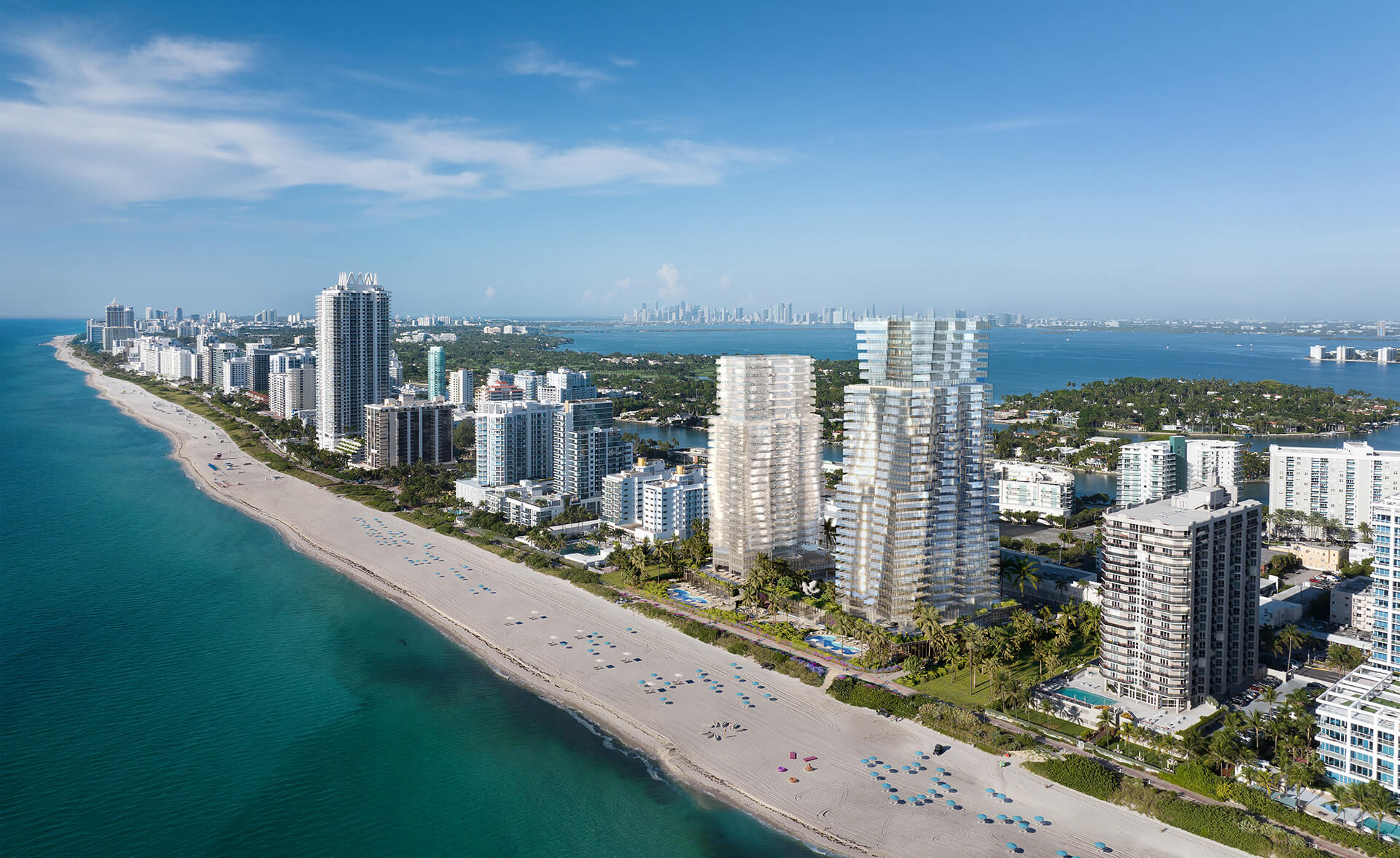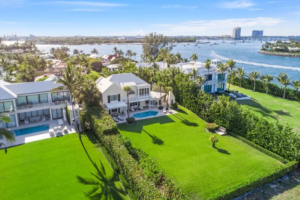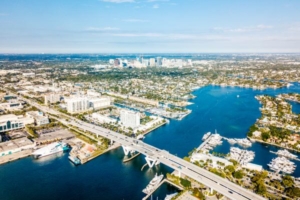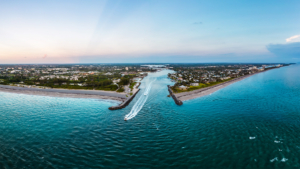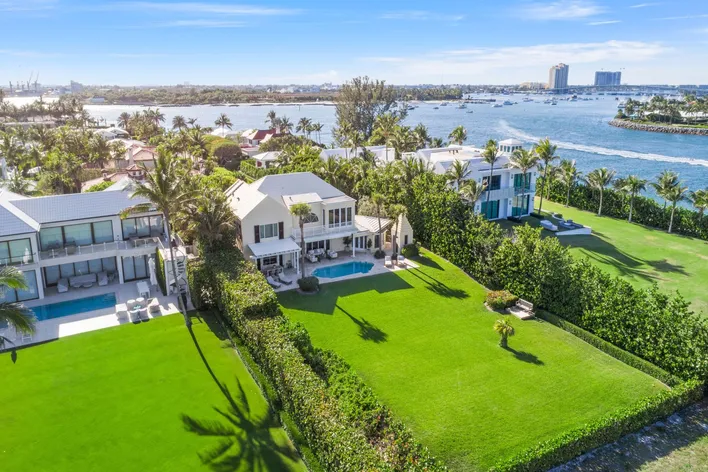Miami Beach Commission Advances Controversial Deauville Resort Redevelopment Plans
The future of one of Miami Beach's most iconic oceanfront properties took a significant step forward this week, as city commissioners voted unanimously to approve key agreements for the redevelopment of the former Deauville Beach Resort site. The contentious project, proposed by the Meruelo family in partnership with developer David Martin's Terra, would transform the 3.8-acre oceanfront property at 6701 Collins Avenue into a luxury complex featuring condominiums, hotel rooms, and retail space.
Settlement Agreement Resolves Years of Conflict
At Wednesday's heated commission meeting, officials approved a settlement agreement requiring the Meruelo family to pay approximately $6.3 million in accrued fines to the city. These penalties accumulated from various infractions including "demolition by neglect," unpaid utility bills, and numerous code violations that plagued the property for years.
According to the agreement terms, half of this amount ($3.15 million) has already been placed in escrow, demonstrating the developers' commitment to resolving the ongoing litigation between the property owners and the city. This represents a crucial turning point in the contentious relationship between Miami Beach and the Meruelos, who faced significant criticism for allowing the once-glamorous Deauville to deteriorate to the point where demolition became necessary in 2022.
A second component of the settlement requires the developers to implement parklike improvements to the development site, including enhanced lighting, irrigation systems, and adherence to a detailed site plan aimed at improving the property's aesthetics during the development process.
Ambitious Development Agreement Outlines Project Scope
The commission also unanimously approved a development agreement on first reading that outlines the proposed project's parameters. The plan includes:
- Partial reconstruction of the original Deauville structure
- Up to 200 hotel rooms
- 140 residential condominium units
- Ground-floor retail spaces
- Public parking facilities
- Public access to the lobby and beach pathways
- $7.5 million contribution to the Byron Carlisle housing project
- $250,000 for development of a public pocket park
- $400,000 in infrastructure funding
Terra's David Martin, who joined as a 25 percent partner in the property approximately a year ago, estimated the blended construction cost at approximately $1,500 per square foot. With the proposed floor area ratio (FAR), this could bring the total development cost to a staggering $1.374 billion.
Controversial FAR Increase Sparks Debate
At the heart of the controversy is the developers' request for a significant increase in the property's floor area ratio (FAR), which would permit a much larger structure than currently allowed. The site presently has an FAR of 3.0 to 3.15, but the proposed legislative changes would increase this to 5.5, allowing for a project spanning nearly 916,000 square feet.
This dramatic increase would enable construction of a 380-foot tower—potentially 38 stories high—dwarfing the original Deauville, which stood at 185 feet and 17 stories before its demolition. These amendments were initially presented to commissioners on first reading in March.
Commissioner David Suarez expressed strong concerns about this aspect of the deal, arguing that the city should hire an economic real estate consultant to determine the true value of the FAR increase.
"How do you know that this agreement is a fair deal to the residents of Miami Beach?" Suarez questioned during the meeting. "Let's be clear at this point, we're selling zoning. We're now in the business of selling FAR and height to developers, which, by the way, I'm totally against."
Previous Development Attempts and Historical Context
This isn't the first attempt to redevelop the iconic Deauville site. In 2022, billionaire developer Steve Ross proposed a Frank Gehry-designed project for the property, but it failed to secure voter approval in a referendum. Commissioner Alex Fernandez noted that voters rejected Ross's plan "in large part because there was no homage to the Deauville."
"We begged Stephen Ross, 'Do something to honor the Deauville,'" Fernandez recalled. "And he flat out told the community, 'Absolutely not.'"
A key difference in the current proposal is the inclusion of a partial reconstruction of the historic Deauville structure, which appears to have garnered more support from commissioners. Additionally, changes to state law in 2023 eliminated the requirement for a voter referendum, simplifying the approval process for the current proposal.
Community Response Remains Divided
Wednesday's commission meeting highlighted the continuing division within the community regarding the project. Some neighboring residents voiced enthusiastic support for the development, while others expressed a more pragmatic desire to simply see the vacant property developed after years of neglect.
Critics, however, raised concerns about rewarding the Meruelos with approvals after allowing the historic property to deteriorate. They also questioned whether such dramatic increases in FAR could set a dangerous precedent for future development projects throughout Miami Beach.
Martin countered these concerns by stating that without the FAR increase, the developers would build only condominiums on the site. "We need the FAR to be able to replicate or build a hotel," Martin explained, suggesting that the hotel component—which would preserve some of the property's historical hospitality function—depends on securing the requested density increases.
Key Insights About the Deauville Redevelopment
Why is this project so controversial?
The controversy stems from multiple factors: the Meruelo family allowing the historic Deauville to deteriorate to the point of required demolition, the significant increase in density and height being requested, and debates about whether the public benefits package adequately compensates the community for these zoning changes.
What happens next in the approval process?
The settlement agreement, development agreement, and pending land use changes will return to the commission on May 21 for final reading. If approved, this would potentially conclude a years-long effort to redevelop the site.
How does this proposal differ from Steve Ross's failed plan?
Unlike Ross's rejected proposal, the current plan includes a partial reconstruction of the historic Deauville structure, which appears to have garnered more support from both commissioners and some community members. Additionally, due to changes in state law in 2023, this proposal does not require voter approval through a referendum.
What will the final project include?
If approved as currently proposed, the project will feature two condo buildings with up to 140 units, a hotel with up to 200 rooms, ground-floor retail spaces, public beach access pathways, and various community benefits including financial contributions to affordable housing and public infrastructure.
Will the new structure resemble the original Deauville?
While the proposal includes a "partial reconstruction" of the Deauville, the overall project would be significantly larger than the original structure, standing at approximately 380 feet compared to the Deauville's original 185 feet. The architectural design team includes Foster + Partners, Shulman + Associates, and ODP as the project architect.
The final fate of this landmark property will be determined when commissioners reconvene on May 21 for the second reading of these agreements, potentially closing a tumultuous chapter in Miami Beach's ongoing struggle to balance preservation, development, and community interests.

